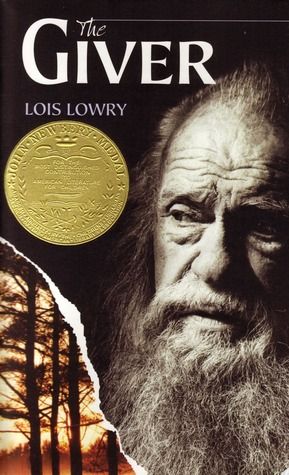-from The Giver by Lois Lowry
In eleven year old Jonas' world, everything is controlled and perfect. Decisions for every facet of life are made by the government, from who they marry to how many children they have and what their job will be in society. When Jonas turns twelve he is assigned the special role of Receiver of Memory in which the Giver of Memory transmits the history of the world to Jonas by memories. With pleasing memories such as snow and love come painful memories such as sunburn and hunger. As Jonas receives memories, he begins to develop feelings that everyone else in society are void of having and he struggles with living in a society where he must carry the weight of emotions alone.
The premise of this story alone is fascinating: a government in which no decisions are made and everything operates perfectly. Nobody truly feels love and in effect nobody really feels loss when a member is "Released". While life may sound somewhat boring, it's simple, and even lively members, such as Jonas' friend Asher, are able to find a place. The understanding that everything that leads to choices, opinions, and emotions is sacrificed by society in order for members to live a "perfect" life becomes too great of a price to pay for ignorant Jonas as he gains emotions. This poses the same question for readers: Would we be willing to sacrifice all the good things in order to protect ourselves from the bad things? Would you sacrifice sunshine to avoid sunburn? Would you sacrifice seasons to avoid hunger? Would you sacrifice love to avoid loss?
This book is not very complex. The premise requires some imagination, but the questions Lowry poses can be processed by readers of all ages. As a child reader and as an adult reader I was and am captivated by this story. It causes the reader to consider life and society from any position on the spectrum of your lifespan. It calls to question whether a utopia is even achievable without sacrificing so much that said utopia can be viewed equally as a dystopia. No matter the age of the reader, this book is a great conversation piece for what we're willing to give up for a perfect life before that perfect life becomes less than ideal.
Bottom Line: Everyone should read this book. I believe that even people who don't consider themselves readers will be drawn in by this world and the questions this book poses. 5/5 stars.



No Comments Yet, Leave Yours!
Thank you so much for reading my blog! If you leave a comment I will try my best to email you back directly and visit your blog, too! If I can't find a way to get back to you, check back for a reply to your comment. Thanks again and happy reading!!